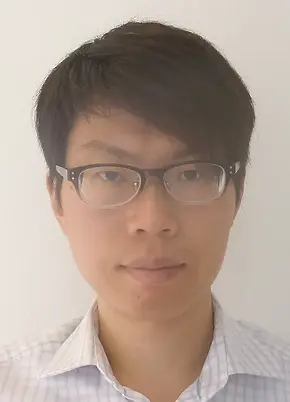The 1st Interdisciplinary Workshop on the Governance for Social Robots (SORO)

SORO - The 1st Interdisciplinary Workshop on the Governance for Social Robots
SORO - The 1st Interdisciplinary Workshop on the Governance for Social Robots
at JURIX 2022
JURIX 2022
Saarbrücken, Germany
December 14th, 2022
About the Workshop
This workshop is organized in conjunction with JURIX 2022. The objective of this workshop is on the governance for social robots through interdisciplinary approaches. With the rapid development of AI and IoT, social robots will be able to adapt into (semi) public environments to perform their tasks on healthcare and personal service. This also arises ethical considerations like deception, privacy, safety, etc. from their close interactions with humans. With this concern, this workshop will include two sessions on philosophical and computational approaches respectively to investigate possible solutions for the governance for social robots. The workshop will have one session on ethical, legal, and social implications (ELSI) to social robots, and the other session on legal compliance by design for social robots.
Organizers

Anne Cheung
Anne S.Y. Cheung is a law professor at the University of Hong Kong. She received her legal education at the University of Hong Kong (LLB), the University of Toronto (JD), University of London (LLM) and Stanford University (JSD). She has taught Media Law, and Law and Society. Her recent projects are on cyberbullying, and China’s social credit system. She has been a member of the Academic Advisory Council of the Humboldt Institute for Internet & Society, Berlin, Germany, Working Group on Data Regulation of Ada Lovelace Institute, London, UK. She is on the editorial board of the Privacy Studies Journal, Journal of Media Law, International Journal of Law in Context and Media & Arts Law Review.

Stefano Pietropaoli
Stefano Pietropaoli is a professor at the University of Florence. He received his Ph.D. in “Constitutional Adjudication and Fundamental Rights” from the University of Pisa. He has made research work at the Institute of Legal Information Theory and Techniques (ITTIG) of the Italian National Research Council, and at the universities of Florence, Brescia and Camerino.
He's vice-director and web-editor for «Jura Gentium. Rivista di filosofia del diritto internazionale e della politica globale».
His research interests include the theory and the history of international law, and Legal informatics.

Diana Saplacan
Diana Saplacan is a researcher at the University of Oslo, at the Department of Informatics, Robotics and Intelligent Systems Research Group. She currently works in Vulnerability in Robot Society (VIROS) research project. She received her Ph.D. degree (2020) from the University of Oslo. Her Ph.D. degree is interdisciplinary within Design of Information Systems, at the cross of Human-Computer Interaction (HCI) and Human-Robot Interaction (HRI), and Computer-Supported Cooperative Work (CSCW) fields, with Universal Design (UD) knitting these fields. She previously worked as a Lecturer in Computer Science at Kristianstad University, Sweden (2013-2016/2020). Her current interests include Human-Robot Interaction and Human-Robot cooperation, ethics regarded through Universal Design principles, inclusion, and accessibility.

Yueh-Hsuan Weng
Yueh-Hsuan Weng is an Assistant Professor at FRIS, Tohoku University and a Visiting Scientist at RIKEN-AIP in Tokyo. He has been appointed as Tohoku University Prominent Research Fellow (2021), Stanford Law School's TTLF Fellow (2018-2021), Visiting Assistant Professor at The University of Hong Kong (2018), Peking University's Yahoo! Research Fellow (2010-2014). He received his Ph.D. in Law from Peking University and his M.S. in Computer Science from National Chiao Tung University. He is strongly interested in interdisciplinary studies, especially in issues concerning the interface between Artificial Intelligence and Law, including Robot Law, Social Robotics, and Legal Informatics. During his Ph.D. studies, he has founded ROBOLAW.ASIA and CHINA-LII, which are China’s first initiatives in AI Law and Free Access to Law.
SORO Program Committee
Enrico Francesconi
(IGSG-CNR)
Erich Schweighofer
(University of Vienna)
Gabriele Trovato
(Shibaura Institute of Technology)
Georg Borges
(University of Saarland)
Genevra Perugeneli
(IGSG-CNR)
Giovanni Sartor
(EUI and University of Bologna)
Giuseppe Conttisa
(University of Bologna)
Gordana Dodig-Crnkovic
(Charmers University of Technology)
Joshua C. Gellers
(University of North Florida)
Luke Chuang
(Natl Yang Ming Chiao Tung University)
Phoebe Li
(University of Sussex)
Robert von den Hoven von Genderen
(University of Lapland)
Andrea Bertolini
(Scuola Superiore Sant'Anna)
Anne Cheung
(The University of Hong Kong)
Burkhard Schafer
(The University of Edinburgh)
Cesar Serbena
(Federal University of Paraná)
Craig Schlenoff
(NIST)
Diana Saplacan
(University of Oslo)
Stefano Pietropaoli
(University of Florence)
Takashi Izumo
(Nihon University)
Takayuki Kanda
(Kyoto University)
Ugo Pagallo
(University of Turin)
Woodrow Barfield
(Whitaker Institute)
Yueh-Hsuan Weng
(Tohoku University)
Keynote Speech
“I’m sorry I’m not human”
- apologies and the creation of trust in care robotics.
Burkhard Schafer
Professor of Computational Legal Theory
Faculty of Law, The University of Edinburgh


WOXQ%24KQ7UF_V_SD%7D55K(X.png)
![E{496T)Q3RLO8C290CV7J]Y.png](https://static.wixstatic.com/media/1344a8_dc3191c64f214e49ad7d124881ca6e23~mv2.png/v1/fill/w_141,h_57,al_c,q_85,usm_0.66_1.00_0.01,enc_avif,quality_auto/E%7B496T)Q3RLO8C290CV7J%5DY.png)
![2_]CUUXFFY2(VJA9WZMIK`O.jpg](https://static.wixstatic.com/media/1344a8_d61fc6debcfc429aa3abc0be9345eae1~mv2.jpg/v1/fill/w_156,h_68,al_c,q_80,usm_0.66_1.00_0.01,enc_avif,quality_auto/2_%5DCUUXFFY2(VJA9WZMIK%60O.jpg)

